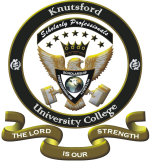

Master's in Finance prepares students to meet the evolving needs of today's businesses of all sizes, and they will emerge from the program able to address challenges in fast-paced, modern work environments using an integrated, financially-focused approach.
As the business world becomes increasingly complex, today's business professionals must have a diverse skillset. These new business professionals must be agile and approach challenges with a systems-thinking mindset and, increasingly, must have a focused area of specialization.
A graduate master's degree is a great way to highlight these in-demand skills and showcase subject matter expertise, as well as gain knowledge that can be applied to your workplace from day one.
| Year 1 1st Semester | COURSE CODE | COURSE TITLE | CREDIT HOURS |
| KMBA 501 | Management and Organizational Behaviour | 3 | |
| KMBA 503 | Entrepreneurship and Innovation | 3 | |
| KMBA 505 | Managerial Economics and Business Strategy | 3 | |
| KMBA 507 | Strategic Communications and Negotiations | 3 | |
| KMBA 509 | Fundamentals of Ethics, Corporate Governance and Business Law | 3 | |
| TOTAL | 15 | ||
|
| |||
| Year 1 2nd Semester | COURSE CODE | COURSE TITLE | CREDIT HOURS |
| KMBA 502 | Marketing Management | 3 | |
| KMBA 504 | Human Resource Management | 3 | |
| KMBA 506 | Financial Management | 3 | |
| KMBA 508 | Accounting for Business Decision-Making | 3 | |
| KMBA 512 | Management Information Systems | 3 | |
| TOTAL | 15 | ||
Semester 3
| KMBA 601 | Technology and Operations Management | 3 |
| KMBA 603 | Research Methods for Business | 3 |
| KMBA 605 | Business Analysis and Strategic Management | 3 |
| Specialisation Course | 3 | |
| Specialisation Course | 3 | |
| TOTAL | 15 | |
Semester 4
| Specialisation Course | 3 | |
| Specialisation Course | 3 | |
| Specialisation Course | 3 | |
| KMBA 602 | Capstone Project | 6 |
| Select one Elective | ||
| Specialisation Elective | 3 | |
| Specialisation Elective | 3 | |
| TOTAL | 18 | |
Degree Requirements
Total - 63 Credits
Semester 3
| Year 2 1st Semester | COURSE CODE | COURSE TITLE | CREDIT HOURS |
| KMBF 601 | Financial Institutions and Markets | 3 | |
| KMBF 603 | Financial Economics/Econometrics | 3 |
Semester 4
| Year 2 2nd Semester | COURSE CODE | COURSE TITLE | CREDIT HOURS |
| KMBF 602 | Investment and Portfolio Management | 3 | |
| KMBF 604 | Financial Risk Management | 3 | |
| KMBF 606 | Corporate Financial Strategy | 3 | |
| Capstone Project | KMBA 602 | Capstone Project | 6 |
| Select one Elective | |||
| KMBF 608 | International Finance | 3 | |
| KMBF 612 | Project Finance | 3 | |
| 18 |
SPECIALISATION PROGRAMMES
Aims and Objectives:
To develop a broad understanding of financial concepts and tools through:
Learning Outcomes:
At the end of this programme students should be able to:
This is a rigorous 2-year programme. Students take such courses as Financial Management, Analysis of Financial Markets, Investment Management, and Economics. In the second year, in addition to courses in finance and other areas, students also write a two-semester long essay under supervision.
Professors at Knutsford will push you to do more, think more and learn more. It's what they do — and it's why their students love them.
The MBA in Finance is open to recent college graduates who may have an undergraduate degree in business. The programme will give students a solid foundation with the core skills and knowledge needed to launch a career in Finance.
The Career and Professional Development department of Knutsford University College is committed to the growth and achievement of our graduates. It provides hands-on guidance, career-building tools, and access to an extensive network of students, alumni, and employers.
The Financial Aid Office at Knutsford Business School is committed to assisting students to explore and understand all the financial aid options that are available to help you manage your financial planning and ensure that you are able to achieve your educational goals.
Graduates of the master's programme in Finance will demonstrate a values-based curriculum focused on personal and professional growth.
Our graduate programmes are tailored to ensure that students develop to become professionals who can manage ethically, responsibly and holistically in a range of organisations in an increasingly global and rapidly changing environment. We pride ourselves in the knowledge that our graduates, upon completion, are successful in almost all spheres of business, industrial, community and professional life, contributing effectively to local, national and international development.
The School believes that its first responsibility is to the students (student-centred education), staff, alumni and all other stakeholders. The SGSR strives to be vibrant and progressive in the drive of the University towards excellence in the global context.
The SGSR commences with the following programmes:
The Knutsford School of Graduate Studies and Research is determined to adequately meet the expectations of all students for graduate studies. The School looks forward to welcoming all prospective students.
Learn more about Knutsford's MBA programmes business administration courses designed for professionally for you.
Master's degrees from accredited MBA programmes are in high demand in the business world, and employment in master’s-level occupations is projected to grow by almost 17 percent from 2016 to 2026. A master's degree also pays off: the median salary for professionals with a master's degree is $72,800+.*
*Sources: Bureau of Labor Statistics (BLS), 2019; job titles: Monster, 2019
By the time you complete the academic and internship requirements for your Masters of Science in Finance degree, you will be able to:
